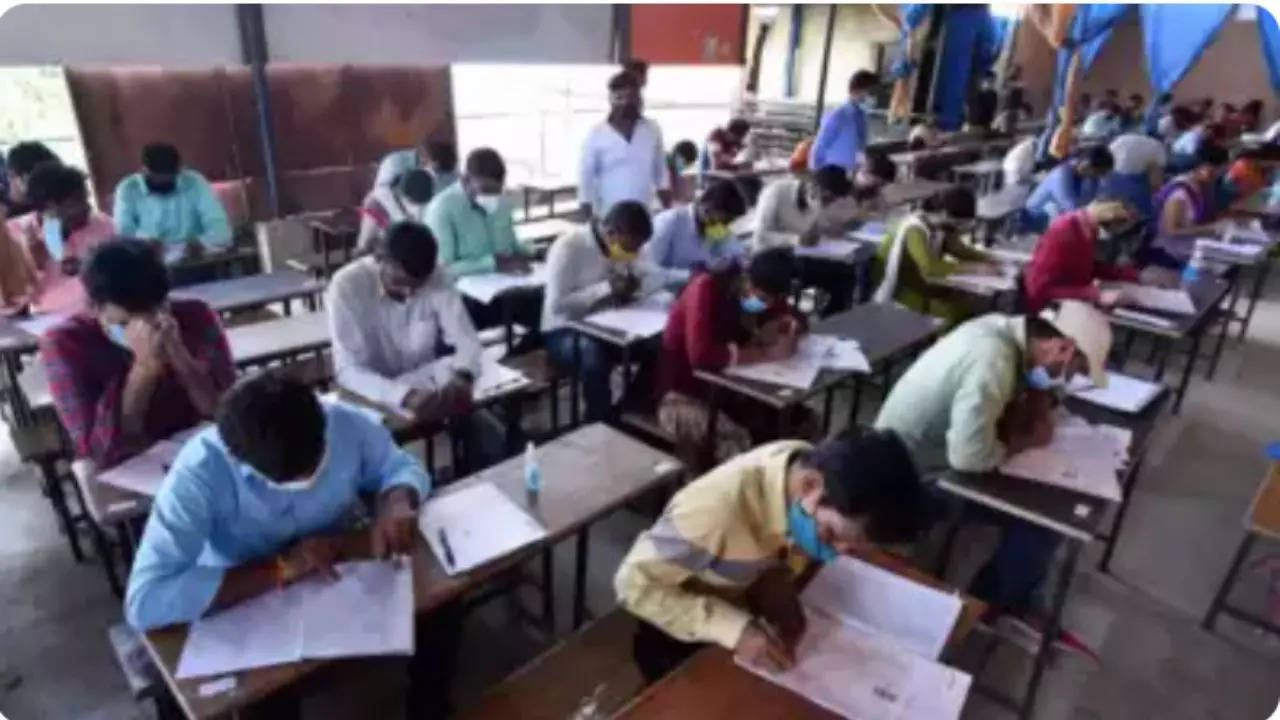NEW DELHI: The government passed the Public Examinations (Prevention of Unfair Means) Bill, 2024 in the Lok Sabha on Tuesday.
The bill seeks to deal with malpractices and irregularities in competitive examinations with provisions for a maximum jail term of 10 years and a fine up to Rs 1 crore, for those found involved in irregularities.
Government’s response to exam cancellations, other queries on the bill
Union minister Jitendra Singh who introduced the bill said that its provisions are meant to safeguard the interest of meritorious students and candidates of the country.
In response to criticism from opposition members accusing the government of centralising control, Singh said the Modi-government believes in cooperative federalism and the bill does not attempt to centralise all the systems.
Addressing concerns about cancelled exams, Singh said that whenever any exam is cancelled, the effort would be made to hold the re-examination as early as possible.
However, he added that the challenge of providing a specific timeline for re-examination can take its own time as such cases are examined by investigative agencies.
The minister also said that the UPSC is conducting exams in 14 languages and “we hope to gradually include all 22 languages”.
Key provision and objectives of the Bill
The bill seeks to deal with malpractices and irregularities in competitive examinations with provisions for a maximum jail term of 10 years and a fine up to Rs 1 crore, for those found involved in irregularities.
Government’s response to exam cancellations, other queries on the bill
Union minister Jitendra Singh who introduced the bill said that its provisions are meant to safeguard the interest of meritorious students and candidates of the country.
In response to criticism from opposition members accusing the government of centralising control, Singh said the Modi-government believes in cooperative federalism and the bill does not attempt to centralise all the systems.
Addressing concerns about cancelled exams, Singh said that whenever any exam is cancelled, the effort would be made to hold the re-examination as early as possible.
However, he added that the challenge of providing a specific timeline for re-examination can take its own time as such cases are examined by investigative agencies.
The minister also said that the UPSC is conducting exams in 14 languages and “we hope to gradually include all 22 languages”.
Key provision and objectives of the Bill
- The bill mentions offenses such as “leakage of question paper or answer key, directly or indirectly assisting the candidate in any manner unauthorisedly in the public examination and tampering with the computer network or a computer resource or a computer system.”
- In many instances, it has been observed that organised groups and mafia elements involved in malpractices deploy solver gangs, use impersonation methods and indulge in
paper leaks .
- The main goal of the bill is to discourage such malicious activities. It aims to enhance transparency, fairness, and credibility in public examinations.
- The objective is to assure young individuals that their sincere efforts will be duly rewarded, reinforcing the belief that their future is secure when they participate in exams with integrity.
- The objective of the bill is to bring in greater transparency, fairness and credibility to the public examination systems and to reassure the youth that their sincere and genuine efforts will be fairly rewarded and their future is safe.
- The bill proposes the establishment of a national technical committee on public examinations that will make recommendations to make the computerised examination process more secure.
- The committee’s mandate includes crafting protocols to safeguard digital platforms, creating robust IT security systems, overseeing electronic surveillance at examination centers, and establishing national standards and services for both IT and physical infrastructure used in conducting examinations.
- The proposed bill incorporates any acts of cheating through the “creation of a fake website” or conducting fraudulent examinations as offenses.
- The bill covers recruitment examinations administered by various bodies such as the Union Public Service Commission (UPSC), Staff Selection Commission (SSC), Railway Recruitment Boards (RRBs), Institute of Banking Personnel Selection (IBPS), and National Testing Agency (NTA).
Until now, there hasn’t been a dedicated law to address malpractices in public examinations organized by the central government.
